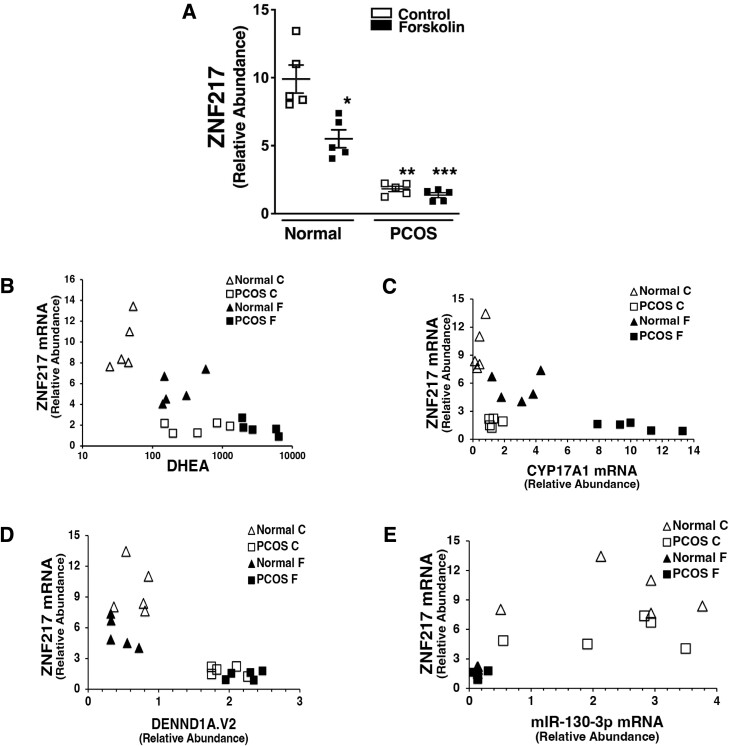Figure 3.
ZNF217 abundance in normal and polycystic ovary syndrome (PCOS) theca cells and the relationship between ZNF217 messenger RNA (mRNA) to dehydroepiandrosterone (DHEA) accumulation, DENND1A.V2, CYP17A1, and miR-130b-3p expression. Individual theca cell preparations from normal (n = 5) and PCOS (n = 5) women were cultured in the absence or presence of forskolin (20 μM). For quantitative reverse transcription polymerase chain reaction, mRNA was harvested from the cells 16 hours following treatment and ZNF217, CYP17A1, DENND1A.V2, miR-130b-3p expression was quantified. In parallel cultures of normal and PCOS theca cells, conditioned medium was collected at 48 hours and DHEA biosynthesis was assayed. A, PCOS theca cells showed decreased expression of ZNF217 mRNA compared to normal theca cells both in forskolin-treated (***P < .001) and untreated cultures (**P < .001. In normal theca cells, the addition of forskolin significantly decreased ZNF217 mRNA (*P < .01). B, ZNF217 mRNA abundance compared to DHEA production. PCOS theca cells cultured in the absence or presence of forskolin showed increased DHEA production and decreased ZNF217 mRNA expression compared to normal theca cells. There was an inverse negative correlation between ZNF217 mRNA expression and DHEA production (Spearman ρ = –0.7353; P < .001). C, CYP17A1 gene expression in PCOS theca cells, required for androgen biosynthesis in PCOS, was negatively correlated with decreased ZNF217 mRNA abundance (Spearman ρ = –0.67890; P = .001). D, Comparison of ZNF217 mRNA expression to DENND1A.V2 mRNA abundance in PCOS and normal theca cells treated without or with forskolin revealed an inverse negative correlation (Spearman ρ = –0.6992; P < .001). E, miR-130b-3p, which targets DENND1A.V2 transcripts, was positively correlated with ZNF217 expression (Spearman ρ = 0.7815; P < .001).

